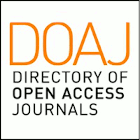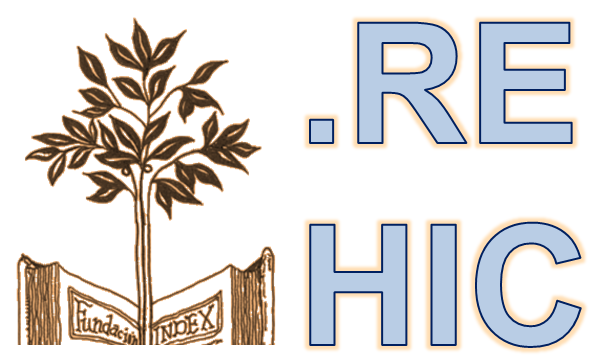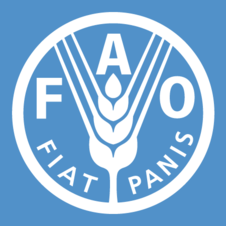Family food security and sustainable households of student nutrition practitioners during the COVID 19 pandemic.
DOI:
https://doi.org/10.29105/respyn20.4-1Keywords:
Seguridad alimentaria, hogares sustentables, COVID 19Abstract
Introduction: The family food security and vulnerability situation of students practicing Nutrition is analyzed. Objective: To improve the forms of educational response linked to sustainable homes in a Center of the University of Guadalajara, in the context of the COVID 19 pandemic. Material and method: 67 families are selected from a universe of 122 families of practicing students. A participatory action research methodological design is applied; Data are collected with a survey, which includes elements of the epidemiological chain of food safety and the analysis of written discourse to evaluate the responses of students to family problems. Results: 70% obtain food from the market and supermarket, 10.4% from home production; half of the population consumes dairy, meat, and sugars daily. The prevalence of overweight / obesity is 46.25%; 6% have suffered from Covid-19 and 10.5% have a previous illness. 91.84% of the students perform intervention in the use and production of food to improve their situation of food vulnerability. Conclusions: The families of the students have food insecurity and vulnerability according to indicators of sustainable production and food consumption, this impacts on the nutritional status and prevalence of chronic-degenerative diseases associated with COVID-19.
Downloads
References
Bello-Chavolla, O. Y., Bahena-López, J. P., Antonio-Villa, N. E., Vargas-Vázquez, A., González-Díaz, A., Márquez-Salinas, A., Fermín-Martínez, C. A., Naveja, J. J., y
Aguilar-Salinas, C. A. (2020). Predicting Mortality Due to SARS-CoV-2: A Mechanistic Score Relating Obesity and Diabetes to COVID-19 Outcomes in Mexico. The Journal of clinical endocrinology and metabolism, 105(8), dgaa346.
Breihl, J. (2010). La epidemiología crítica: una nueva forma de mirar la salud en el espacio urbano. Rev. Salud Colectiva, Buenos Aires, 6(1):83-101 DOI: https://doi.org/10.18294/sc.2010.359
Colmenares, A. M. (2012) Investigación-acción participativa: una metodología integradora del conocimiento y la acción. Voces y Silencios: Revista Latinoamericana de Educación, Vol. 3, No. 1, 102-115. DOI: https://doi.org/10.18175/vys3.1.2012.07
Crocker, R., Muñoz P.,. Vázquez J. L., Pérez T. (2019) Relación del modo de producción de alimentos y vida sustentable en la microcuenca la Primavera-Presa de la Vega en el estado de Jalisco, México. Oikos Polis, Rev. Latinoamericana de Ciencias Económicas y Sociales. 4 (2) 1-29.
Eche, D., & Hernández-Herrera, M. (2018). Studying food security among students: a comparative case study between public and private universities in Quito-Ecuador. Nutrición Hospitaria, 35(6), 1372-1378. DOI: https://doi.org/10.20960/nh.1919
Elsahoryi N., Al-Sayyed H., Odeh M., McGrattan A., Hammad F. (2020). Effect of Covid-19 on food security y: A cross-sectional survey. Clinical Nutrition ESPEN. DOI: https://doi.org/10.1016/j.clnesp.2020.09.026
FAO, FIDA y PMA. (2012) El estado de la inseguridad alimentaria en el mundo 2012. El crecimiento económico es necesario pero no suficiente para acelerar la reducción del hambre y la malnutrición. Roma, FAO.
Fernández P., Lucio A., Nahed J., Téllez J, y García N. (2014) “Modos de vida sustentables una metodología para el estudio de la seguridad alimentaria.”Revista de Salud Pública y Nutrición 13.
http://www.respyn.uanl.mx/xiii/1/ensayos/modos.htm.
González L. (2007) La Pedagogía Crítica de Henry A. Giroux. Rev Sinéctica, 29-86. URL: Pedagogía de Frontera Giroux.pdf
INCAP/OPS. (2000) Hacia la seguridad alimentaria y nutricional en el Siglo XXI. Memorias de Reunión Científica. Guatemala, 6-8 septiembre de 1999.
Kammar-García, A., Vidal-Mayo, J. J., Vera-Zertuche, J. M., Lazcano-Hernández, M., Vera-López, O., Segura-Badilla, O., Aguilar-Alonso, P., y Navarro-Cruz, A. R. (2020). Imparct of comorbidities in mexican SARS-COV-2-positive patients: A retrospective analysis in a national cohort. Revista de investigacion clinica; organo del Hospital de Enfermedades de la Nutricion, 72(3), 151–158. DOI: https://doi.org/10.24875/RIC.20000207
Mason P., Lang T. (2017) Sustainable diets: how ecological nutrition can transform consumption and the food system Routledge, Oxon, UK. DOI: https://doi.org/10.4324/9781315802930
Mundo-Rosas , V., Vizuet-Vega, N. I., Martínez-Domínguez , J., Morales-Ruán , M. C., Pérez-Escamilla, R., & Shamah-Levy , T. (2018). Evolución de la inseguridad alimentaria en los hogares mexicanos: 2012-2016. Salud Pública de México, 60(3), 309-318. Obtenido de https://www.medigraphic.com/pdfs/salpub DOI: https://doi.org/10.21149/8809
Organización de las Naciones Unidas para la Agricultura y la Alimentación. 1996. “Informe de políticas, seguridad alimentaria. Cumbre Mundial de la Alimentación en Roma, Italia” Dirección de Economía Agrícola y del Desarrollo.
Posso, M., Comas, M., Román, M., Domingo, L., Louro, J., González, C., Sala, M., Anglès, A., Cirera, I., Cots, F., Frías, V. M., Gea, J., Güerri-Fernández, R., Masclans, J. R., Noguès, X., Vázquez, O., Villar-García, J., Horcajada, J. P., Pascual, J., y Castells, X. (2020). Comorbidities and Mortality in Patients With COVID-19 Aged 60 Years and Older in a University Hospital in Spain. Archivos de bronconeumologia, 56(11), 756–758. DOI: https://doi.org/10.1016/j.arbres.2020.06.012
Wilson, N., Cleghorn, C., Cobiac, L., Mizdrak, A., y Nghiem, N. (2019). Achieving Healthy and Sustainable Diets: A Reviewof the Results of Recent Mathematical Optimization Studies. Advances in Nutrition,10, S389-S203. DOI: https://doi.org/10.1093/advances/nmz037
Downloads
Published
How to Cite
Issue
Section
License
Copyright (c) 2021 Renè Cristòbal Crocker Sagastume, Nohemí Rahel Esparza Alvarado, Lourdes Concepción Huerta García, Ariadna Lizbeth Pérez Boarín

This work is licensed under a Creative Commons Attribution 4.0 International License.
The rights of the work belong to the author or authors, however, by sending it for publication in the Public Health and Nutrition Magazine of the Faculty of Public Health and Nutrition of the Autonomous University of Nuevo León, they grant the right for its first publication in between electronic, and possibly, in print to the Public Health and Nutrition Magazine. The license used is the Creative Commons attribution, which allows third parties to use what is published whenever the authorship of the work is mentioned and the first publication that is in the Public Health and Nutrition Magazine. Likewise, the author or authors will take into account that it will not be allowed to send the publication to any other journal, regardless of the format. The authors will be able to make other independent and additional contractual agreements for the non-exclusive distribution of the version of the article published in the Public Health and Nutrition Magazine (e.g., institutional repository or publication in a book) provided they clearly state that The work was published for the first time in the Public Health Magazine, Magazine of the Faculty of Public Health and Nutrition of the Autonomous University of Nuevo León.














